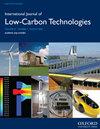Application of sustainable smart manufacturing technologies and toolkits in the automotive industry
IF 2.3
4区 工程技术
Q3 ENERGY & FUELS
引用次数: 1
Abstract
A more rapid development of smart manufacturing system (SMS) within the automotive industry will significantly promote its competitiveness which is essential to the economic sustainable development of South Africa. From recent research studies, the automotive sector contributes over 7% to the annual gross domestic product (GDP) of South Africa and its sustainability is important to the segment through SMS. Thus, the SMS deserves greater focus from the Government and the industry. Smart manufacturing technology utilises machines and tools which are interconnected for the improvement of manufacturing system and energy optimization. The benefits of SMS include cost reduction, increased productivity, product customization, resources efficiency, and minimization of negative environmental impacts. Globally, the automotive industry puts significant emphasis on SMS, considering the on-going substantial initiatives. In order to achieve SMS, ultramodern technologies in different areas, varying from Cyber-Physical Systems (CPS), smart sensors, complex and large data analytics, Internet of things (IoT), cloud manufacturing, and to additive manufacturing, energy reduction, and hologram, are being established and employed in manufacturing locations. Therefore, this study is aimed at technologies and toolkits development that will increase the implementation and responsiveness of SMS among automotive manufacturers and supports decision-makers in planning better Smart Manufacturing Systems capabilities.可持续智能制造技术和工具包在汽车行业的应用
汽车行业智能制造系统(SMS)的快速发展将大大提高其竞争力,这对南非的经济可持续发展至关重要。根据最近的研究,汽车行业对南非年国内生产总值(GDP)的贡献率超过7%,其可持续性通过SMS对该细分市场至关重要。因此,SMS值得政府和行业更加关注。智能制造技术利用相互连接的机器和工具来改善制造系统和能源优化。SMS的好处包括降低成本、提高生产力、产品定制、资源效率和最大限度地减少负面环境影响。在全球范围内,考虑到正在进行的实质性举措,汽车行业非常重视短信。为了实现SMS,不同领域的超现代技术,从网络物理系统(CPS)、智能传感器、复杂和大数据分析、物联网(IoT)、云制造,到增材制造、节能和全息图,正在制造地点建立和应用。因此,本研究旨在开发技术和工具包,以提高SMS在汽车制造商中的实施和响应能力,并支持决策者规划更好的智能制造系统能力。
本文章由计算机程序翻译,如有差异,请以英文原文为准。
求助全文
约1分钟内获得全文
求助全文
来源期刊

International Journal of Low-carbon Technologies
Engineering-Architecture
CiteScore
4.30
自引率
4.30%
发文量
106
审稿时长
27 weeks
期刊介绍:
The International Journal of Low-Carbon Technologies is a quarterly publication concerned with the challenge of climate change and its effects on the built environment and sustainability. The Journal publishes original, quality research papers on issues of climate change, sustainable development and the built environment related to architecture, building services engineering, civil engineering, building engineering, urban design and other disciplines. It features in-depth articles, technical notes, review papers, book reviews and special issues devoted to international conferences. The journal encourages submissions related to interdisciplinary research in the built environment. The journal is available in paper and electronic formats. All articles are peer-reviewed by leading experts in the field.
 求助内容:
求助内容: 应助结果提醒方式:
应助结果提醒方式:


